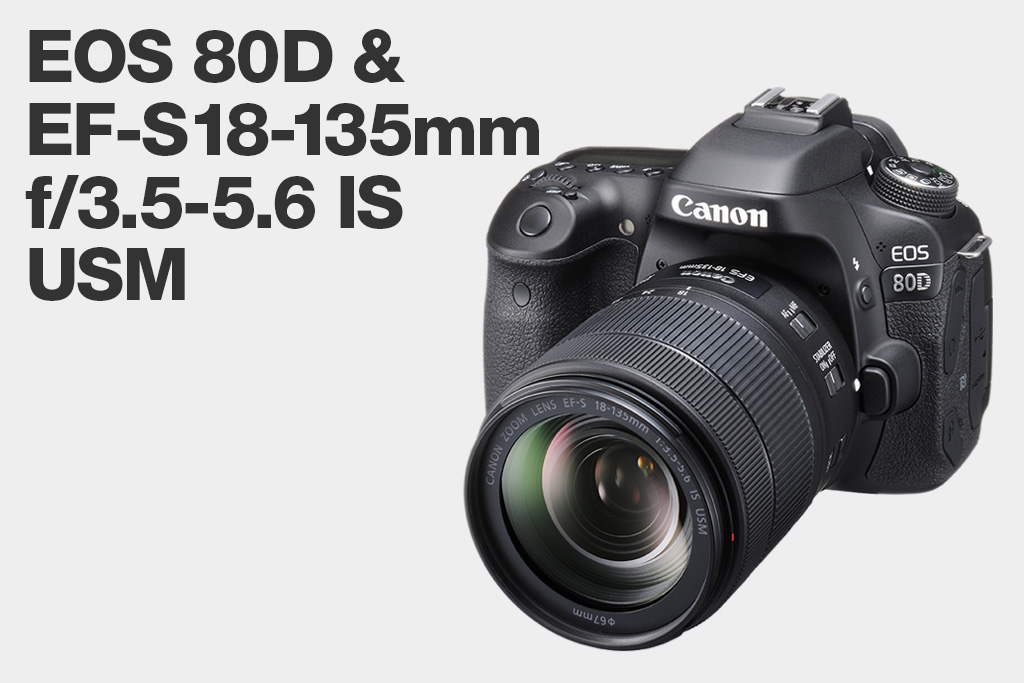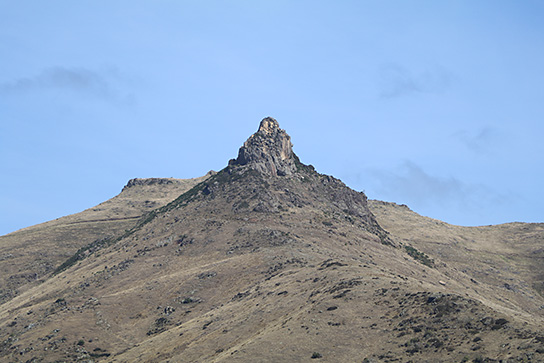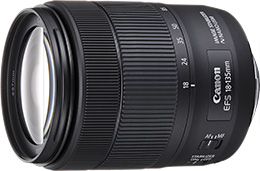Driven by the latest Nano USM, the EF-S18-135mm f/3.5-5.6 IS USM might belong in the new generation of superzoom lens, but how does it fare in terms of its ease of use in actual situations? Join me as I review the lens using the popular EOS 80D. (Reported by: Ryosuke Takahashi)

Key Benefits
- High speed AF and smooth focusing. AF is driven by Nano USM
- Allows for a wide variety of photographic expressions. Is compatible with the Canon Power Zoom Adapter PZ-E1
Capture a wide range of both stills and movies with just one lens
The EF-S18-135mm f/3.5-5.6 IS USM is a next generational superzoom lens that boasts groundbreaking technologies. Chief among them is the new USM (Ultrasonic Motor) equipped—the new Nano USM—which powers movement differently compared to the Ring and Micro USMs.
Unlike in other USMs, the piezoelectric ceramic element of a Nano USM does not generate rotational movement from ultrasonic vibrations. Rather, these vibrations are converted into linear motion, which is used to directly drive the optical element coupled to the slider. By making use of this characteristic, a 4.3x improvement in the maximum AF speed at the telephoto end was realized compared to the EF-S18-135mm f/3.5-5.6 IS STM. This also allows for smooth focusing and a silent drive, both of which are indispensable requirements in videography.

Video showing the structure of the Nano USM

Internal view of the lens tube. Click here for more information about the Nano USM
The lens composition of the optical elements follows in the footsteps of the well-regarded EF-S18-135mm f/3.5-5.6 IS STM. It covers angles of view approximate to that of equivalent focal lengths of 29 - 216mm, and fulfils the high level of performance expected of a superzoom lens. When taking still images, the IS (Image Stabilization) system delivers shake correction equivalent to 4 shutter speed stops, while Dynamic IS comes into action during movie shooting. It allows stable images to be taken by compensating for the large amount of camera shake that typically takes place during filming.
By mounting the Power Zoom Adapter PZ-E1 at the bottom of the lens, not only can smooth zooming be carried out using the electric drive, remote control operations can also be carried out via Wi-Fi. With its high functionality and expandability, this is the new superzoom lens that will let you express yourself in new ways, whether it be through still photography or videography.
18mm

EOS 80D/ EF-S18-135mm f/3.5-5.6 IS USM / FL: 18mm (29mm equivalent)/ Aperture-Priority AE (f/8, 2.5 sec, EV-0.3)/ISO 100/ WB: Daylight
Using the Power Zoom Adapter PZ-E1 and a slow shutter speed of 2.5 sec, I carried out long exposure zooming on these lights modelled after a tree. The lines were stunningly captured without undulating light traces as I could zoom with the lens at a uniform speed. (Photos by: Ryosuke Takahashi)
135mm

EOS 80D/ EF-S18-135mm f/3.5-5.6 IS USM / FL: 135mm (216mm equivalent)/ Aperture-Priority AE (f/5.6, 1/320 sec, EV±0)/ISO 100/ WB: Auto
When shot at maximum aperture, there was a suitable degree of bokeh in the background, allowing the scene to be easily expressed. Although the bokeh is not of the f/2.8 class, it is probably sufficient to convey a sense of the surroundings. (Photos by: Ryosuke Takahashi)
Check this out!
With the EF-S18-135mm f/3.5-5.6 IS USM, you can capture the same subject at various angles of view

18mm

35mm

50mm

85mm

135mm
As you can see from the photos, there is a large change in the angle of view as the lens is zoomed from 18mm to 135mm. The diagonal angle of view changes from 74°20' to 11°30'. The difference in the telephoto range becomes more apparent when you consider that the telephoto end of a standard zoom lens for an APS-C size sensor is around 55mm.

EF-S18-135mm f/3.5-5.6 IS USM
(29-216mm equivalent when fitted to the EOS 80D)
Lens configuration: 12 groups 16 elements
Minimum shooting distance: 0.39m
Maximum shooting factor: 0.28X
Filter ratio: φ67mm
Maximum diameter x length: Approx. φ77.4×96mm
Weight: Approx. 515g

Lens configuration diagram
A: Aspherical lens element
B: UD lens element
C: Image stabilizing unit

Lens hood: EW-73D (sold separately)

Power Zoom Adapter PZ-E1

Ryosuke Takahashi
Born in Aichi in 1960, Takahashi started his freelance career in 1987 after working with an advertising photo studio and a publishing house. Photographing for major magazines, he has travelled to many parts of the world from his bases in Japan and China. Takahashi is a member of the Japan Professional Photographers Society (JPS).

Digital Camera Magazine
A monthly magazine that believes that enjoyment of photography will increase the more one learns about camera functions. It delivers news on the latest cameras and features and regularly introduces various photography techniques.
Published by Impress Corporation

































